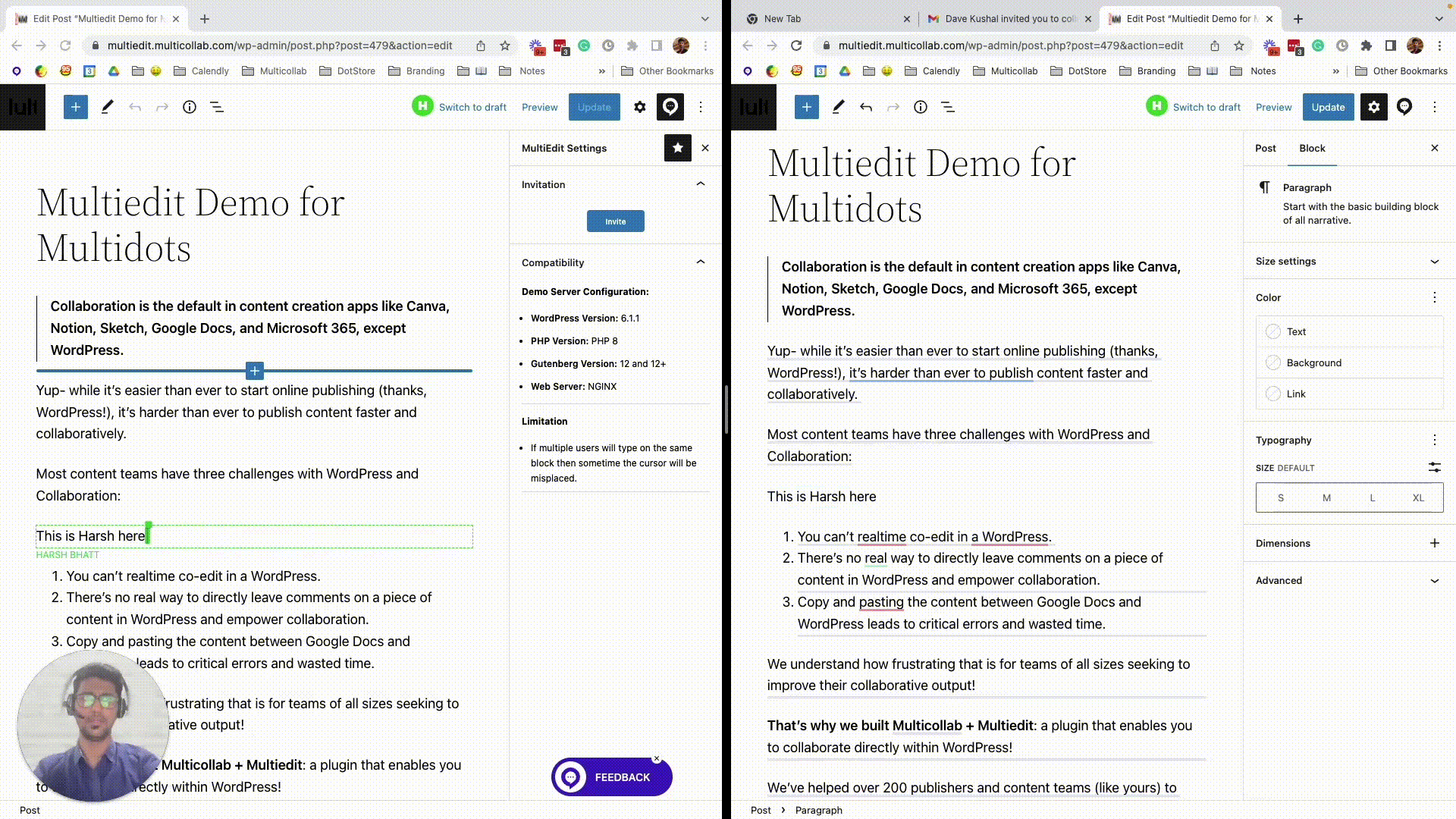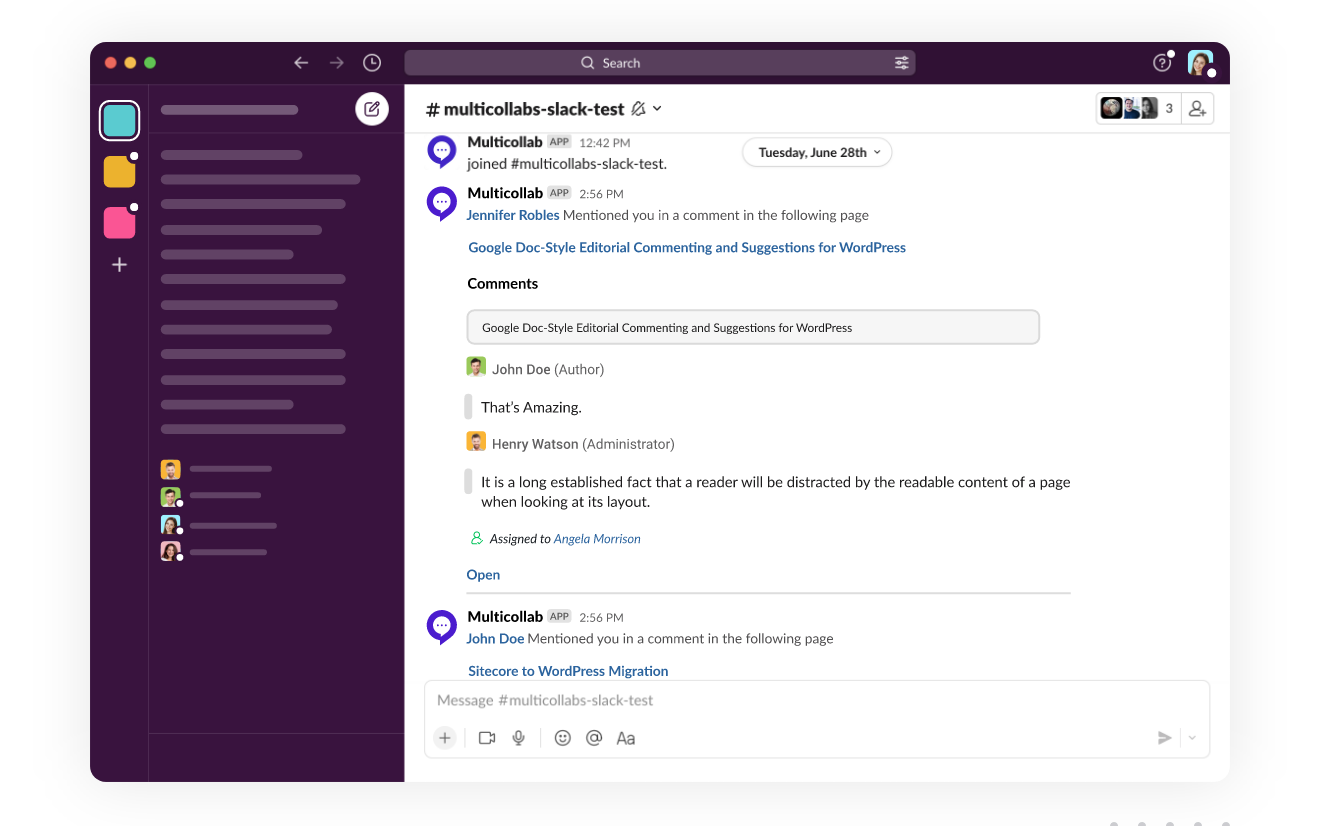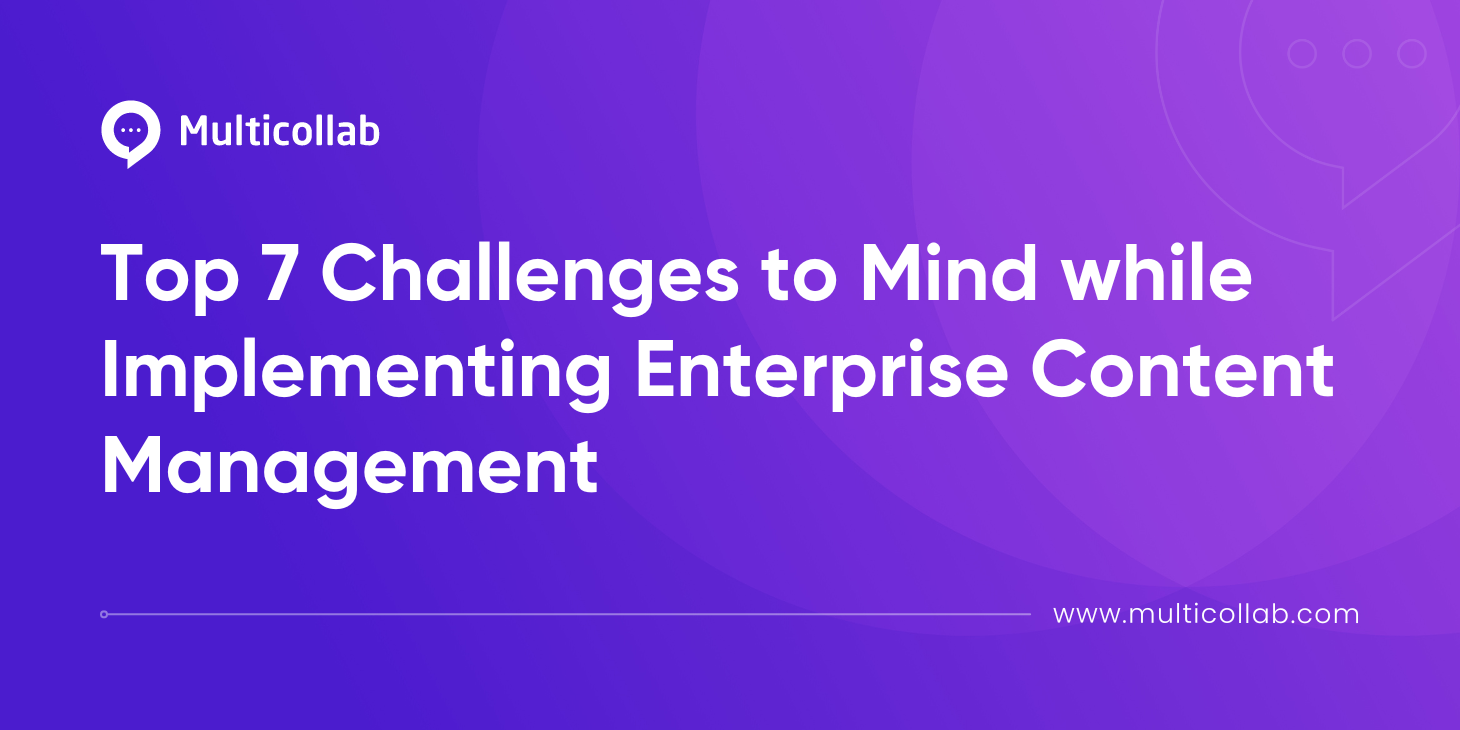Table of Contents
From engaging blog posts to captivating social media campaigns, digital content is the key to connecting with audiences and driving business growth. As businesses grow and the volume of content increases, effective content management becomes even more crucial.
Rightful content management goes beyond creation, spanning into distribution, analysis, and optimization. When executed skillfully, the right content management strategy provides a competitive advantage, driving businesses toward their goals and objectives. However, for enterprises lacking a structured content management strategy, navigating the digital landscape can pose significant challenges.
When businesses face challenges like content inconsistency and misaligned marketing efforts, it highlights the importance of having a robust content management plan. Without it, they risk wasting resources and missing out on reaching their target audience.
In this article, we’ll explore the key hurdles businesses encounter in content management and offer practical solutions. Additionally, we’ll introduce a tool designed to simplify content creation and management, enabling businesses to operate more efficiently and save time.
Delving into challenges with Enterprise Content Management
Content management is the heartbeat of any successful digital strategy. It involves the intricate processes of creating, storing, distributing, analyzing, and optimizing content throughout its lifecycle. Essentially, it’s about making sure businesses can effectively organize and use their digital assets to reach their goals.
A key player in content management is the Content Management System (CMS). This system acts as the backbone for managing web content, providing a centralized platform where users can create, edit, and publish content. By streamlining workflows and enabling collaboration across teams, CMS platforms make content management a whole lot easier.
But, as essential as content management is, it comes with its fair share of challenges, especially for larger enterprises. As businesses grow and churn out more content, these challenges become even more complex, making it harder to effectively manage content at each stage of the lifecycle.
Let’s take a look at 7 of the key challenges faced by content managers at an enterprise level and explore practical advice on how to overcome them.
1. Organizational Silos and Inefficiencies
As organizations grow and deal with increasing amounts of content, the number of distinct collaborators and teams also increases. However, this can lead to organizational silos that hamper efficiency, particularly when collaborators are from different teams. This can cause content to get lost or stuck, and communication between teams may suffer. Breaking down these silos is essential for enhancing content management efficiency. Practical steps to achieve this include utilizing a centralized platform for content management, encouraging the sharing of documents and knowledge, and fostering better communication among teams.
2. Poor Content Workflow Management
Having a comprehensive content workflow is crucial for effectively managing the content lifecycle. Inefficient workflows can negatively affect both time-to-market and content quality. To streamline workflows, consider appointing a dedicated team member to oversee the process, ensuring clarity regarding roles and responsibilities for all collaborators, fostering effective communication, and regularly updating the workflow to adapt to process changes.
To better manage content workflows, check out Multicollab’s guide on managing content workflows.
3. Security and Maintenance Concerns
With the increasing volume of content and business scale, security requirements naturally evolve. Regular maintenance and updates are vital to ensure the security of content management systems (CMS). Security plugins and tools play a significant role in maintaining website content and data security. Considering security from the outset can prevent costly process, workflow, and technology changes as businesses scale towards enterprise-level content management.
4. Data Volume Challenges
Dealing with increased volumes of data, stemming from heightened content production, poses challenges and strains on resources. Inadequate data management may result in bottlenecks and version control issues, impacting both content quality and production timelines. Establishing a centralized system becomes essential for efficient data management as businesses expand and generate larger amounts of content. This centralized approach enables better organization, access, and control over data, facilitating smoother operations and mitigating potential issues associated with data overload.
5. Undefined Distribution Strategy
Many pieces of content go unnoticed due to the lack of an effective content marketing and distribution strategy. This oversight can result in missed opportunities for audience engagement and ROI. Distributing content across various channels beyond the website, such as email newsletters and social media, presents opportunities for reaching a wider audience. Introducing tools like email marketing solutions and Digital Asset Management (DAM) systems can aid in this process.
6. Technology Adoption Challenges
As content volume increases, businesses need to adopt new technologies and systems to scale effectively. However, adopting new tech can come with a learning curve, hindering business growth. Choosing user-friendly tools aligned with team skills and business goals is crucial. Effective communication and training are essential during the adoption of new technologies.
7. High Costs
Handling larger content volumes can lead to increased overhead costs, including technology, staff, and infrastructure. Inefficiencies in content management further escalate costs, such as increased labor and delayed time-to-market. Addressing organizational silos, enhancing workflow efficiency, and adopting scalable technology can help reduce content production and management costs, maximizing ROI.
Transforming Challenges into Opportunities with Multicollab
Many of the challenges encountered in enterprise content management stem from inefficiencies in process and workflow management, decentralized data and asset management, and an overly complex tech stack. These issues can lead to organizational silos, content bottlenecks, and difficulties in managing large volumes of content effectively.
With Multicollab, content teams can work with a collaborative content management solution designed to address these challenges head-on and transform them into opportunities for streamlined content operations and enhanced productivity.
Key Features of Multicollab:
Centralized Content Management System: Multicollab operates directly within WordPress, providing a centralized platform for content creation, management, and distribution. By consolidating these functions within the CMS, Multicollab eliminates the complexities associated with disparate systems, reducing organizational silos, simplifying content workflows, and streamlining data management.
Real-time Collaboration: With Multicollab, collaborators can work on content simultaneously, promoting workflow efficiency and making content time-to-market twice as fast. Real-time collaboration capabilities ensure that team members can collaborate seamlessly, regardless of their location or time zone, resulting in faster content production cycles.

Built-in Communication Tools: Multicollab offers built-in commenting and suggestion features, along with instant Slack and email notifications, facilitating seamless communication among team members. These tools help to prevent workflow bottlenecks and ensure that feedback is addressed promptly, enhancing overall productivity and collaboration.

Straightforward Data Management: Multicollab’s centralized dashboard and features such as content activity logs and snapshot reporting simplify data management for content teams. With easy access to key data and insights, content managers can effectively manage large volumes of content, mitigate version control issues, and make informed decisions to optimize content performance.
Easy Adoption and Scalability: As Multicollab seamlessly integrates with the WordPress editor, it is straightforward to adopt for content teams already familiar with WordPress as their CMS. The plugin is designed to scale with your WordPress site(s), supporting unlimited content across all plans. More advanced plans offer additional site licenses, advanced features, and comprehensive support options to accommodate growing content needs.
By leveraging Multicollab’s collaborative features and streamlined content management capabilities, enterprises can overcome the challenges of content management and unlock new opportunities for efficiency, innovation, and growth in the digital landscape.
Next Steps to Optimized Content Management
Effective content management is essential for business success, especially as your organization expands and deals with larger volumes of content. However, navigating the challenges of content management can be daunting, potentially hindering business growth and impacting the ROI of your content strategy.
Enter Multicollab – a powerful solution designed to streamline content management and drive efficiency in your operations. With features like centralized content management, real-time collaboration, built-in communication tools, straightforward data management, and easy scalability, Multicollab empowers businesses to take their content strategy to the next level.
By leveraging the capabilities of Multicollab, you can scale your content operations, maximize productivity, and unlock new opportunities for growth. Don’t wait any longer. Get started with Multicollab today and transform your content management strategy.






